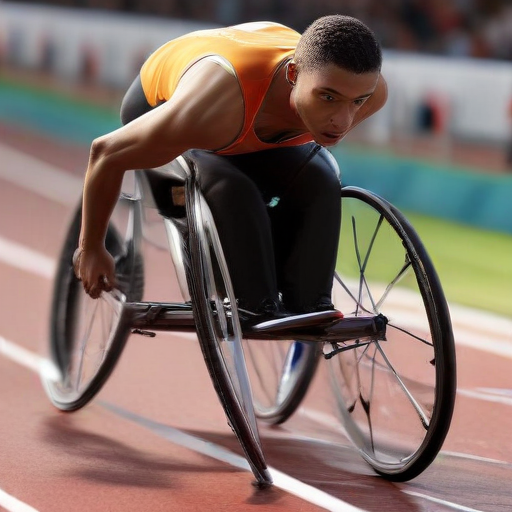In a brightly decorated room in Lodi, New Jersey, 16-year-old Melanie Mejia exemplifies determination and resilience. With motivational signs hanging on her pink walls and medals from numerous sports competitions proudly displayed, Melanie aims to compete in the Paralympics.
However, her journey has been fraught with challenges. In late 2016, when she was just eight years old, Melanie experienced a sudden and severe health crisis. After waking up with a high fever, she was swiftly admitted to the hospital, where medical tests revealed that she had acute disseminated encephalomyelitis (ADEM), a rare autoimmune disorder that severely affected her mobility.
Initially, Melanie required a wheelchair and faced significant adjustments in her daily life, which was a profound shift for her and her entire family. As her mother recalls, the transition from an active child to someone needing assistance for daily tasks was particularly difficult. Yet, with the support of dedicated therapists and a strong family unit, Melanie began to adapt to her new reality.
In 2021, Melanie encountered another hurdle when she was diagnosed with juvenile dermatomyositis, an autoimmune condition impacting her muscles. Under the care of Dr. Michelle Sirak, a pediatric physiatrist, Melanie found hope and empowerment through rehabilitation that focused not only on mobility but also on gaining independence.
A pivotal moment emerged when she attended a local adaptive sports club. Although hesitant at first, witnessing other children with disabilities thrive in sports inspired Melanie to embrace her athletic side. Soon, she was actively participating in swimming, archery, and track and field, along with ballet and acting. Her first swim competition made her realize that she could thrive despite her challenges.
Today, Melanie is not just a survivor; she is a thriving athlete who aims to inspire others. Dr. Sirak emphasizes the importance of adaptability, focusing on adjustments needed in Melanie’s equipment to optimize performance. Even when insurance challenges arose regarding necessary devices, community support stepped in to provide what she needed.
Having recently competed at the Hartford Nationals, Melanie is fueled by an insatiable ambition to one day compete in the Paralympics. She embraced the message that she is capable—underscoring her belief that her abilities, though expressed differently, are just as valuable.
Melanie’s story serves as a powerful reminder of resilience and the importance of community support. As she continues to pursue her passions, both Melanie and her medical team aim to break down barriers, enabling her and others to reach their full potential.
The journey of Melanie Mejia reflects the strength found in adversity, and her story inspires hope for others facing similar struggles. With unwavering determination and a supportive network, the future appears bright for this young athlete.
